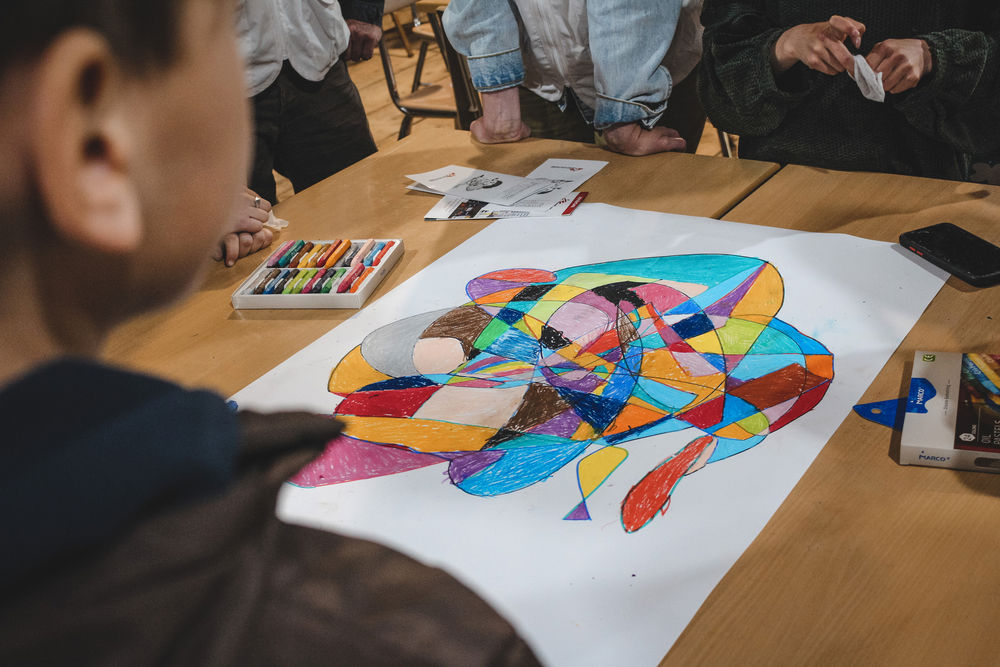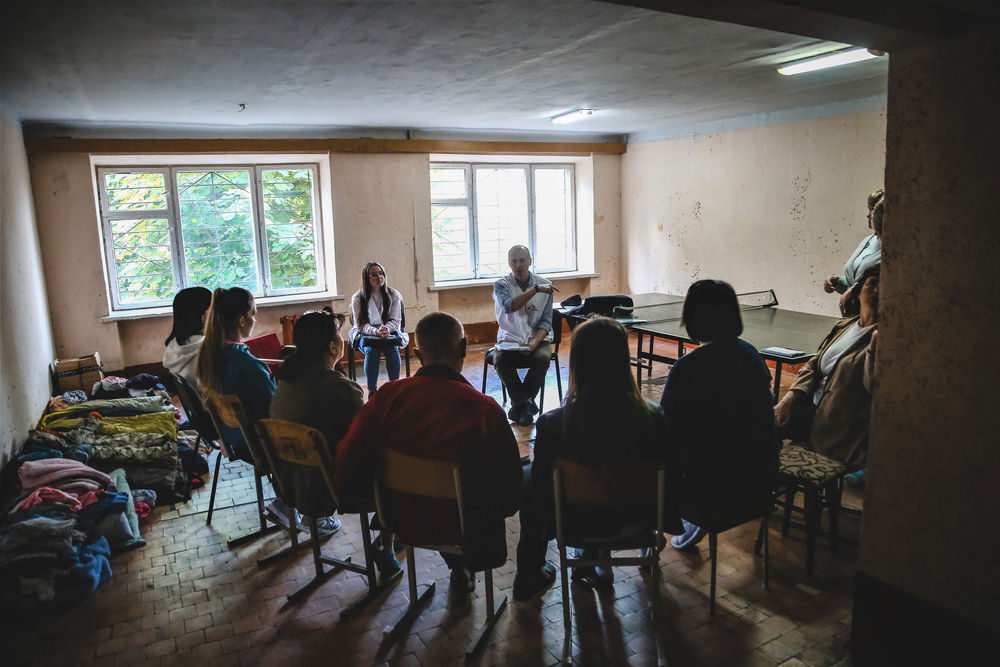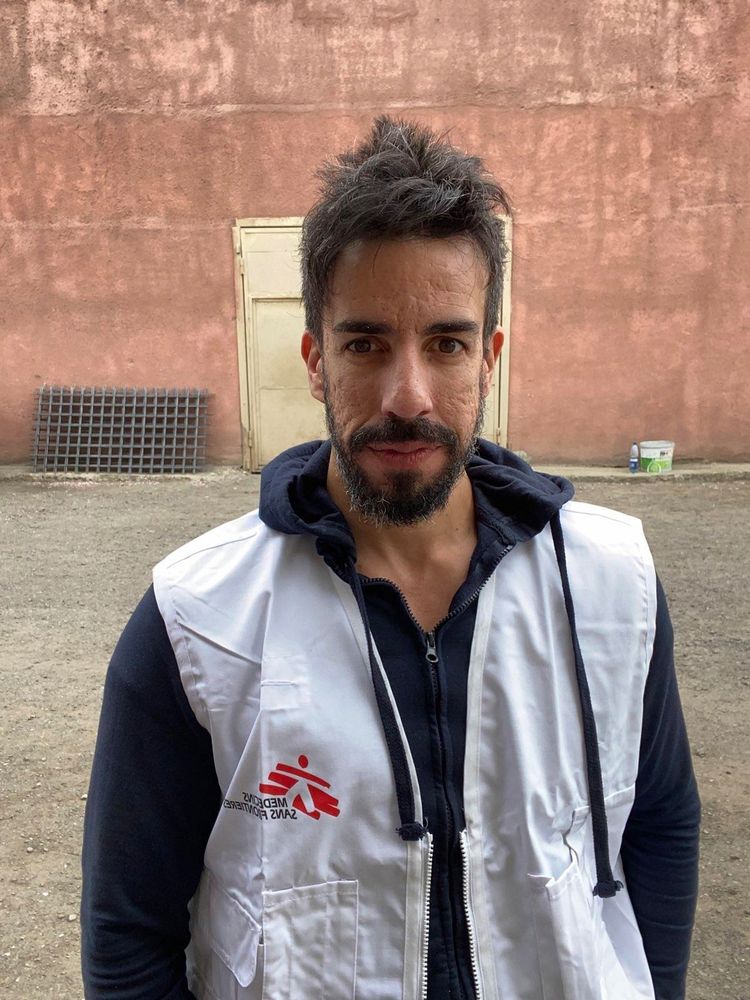Svitlana fled her village of Okhotnyche, in Zaporizhzhya Region, southeast Ukraine, after severe shelling by Russian forces began in April. She now stays in a shelter in Zaporizhzhya with her mother and 87-year-old grandmother, where she receives psychological support from an MSF psychologist. Here, Svitlana shares her story, and explains why she thinks psychological support is important for people who have been affected by the war in Ukraine.
The first time I got really scared was on my birthday. There were explosions all night. I quickly forgot that it was my birthday, and just prayed my family and I would see another day. From that point, things started to get really bad.
I was afraid of occupation – that was my biggest fear. One night there were so many explosions, and I was afraid to stay in the house, so I went to sleep in the garden. It was April, and it was still cold. Nevertheless, I slept there on a folding cot. I dressed warmly and slept there. At some point, I'm not sure when exactly as I didn’t have my phone around, I woke up to sporadic explosions. I was surrounded by extremely thick fog. I couldn’t make out what had been targeted. Was it our village? Or was it just passing by the river? I had no idea where to run, or where to hide.
When fleeing, we had to drag our grandmother on a bicycle for two kilometres in the rain. We then had to cross a footbridge – we were worried that it had been wired with explosives, because on our side of the river there were Russians soldiers, and on the other side it was likely under Ukrainian control. We weren’t sure we would make it. Finally, we reached a village, but shelling started there as well. So we kept moving to find safety.
When we arrived in Zaporizhzhya, it was strange to see that people lived normally as if there was no war. It was quiet and peaceful, shops were working. That’s what was strange for me at the beginning. At home we didn’t have electricity for months, but there is no problem with that here.
But soon I faced some mental struggles. Loud sounds started to scare me. For instance, if the door banged or something dropped loudly, I would jump up out of fright. When I hear missiles being shot down or the loud air raid sirens, I get frightened, as it reminds me of everything we experienced at home.
Here at the shelter, I talk to the MSF psychologist. I like it. I'm trying to follow her advice and I hope it will help me improve my relationships with relatives. Due to the war, the tension in our relationships have increased. It’s extremely hard for me to find common ground with my mother and grandmother. My mother wants to go home, but I understand that it’s dangerous and I am talking her out of it. But perhaps it’s better to let her go if she wants. Perhaps it will be better for her. Perhaps.
 MSF psychologists work with children who have been evacuated from conflict areas. ©Nadiia Voloboieva
MSF psychologists work with children who have been evacuated from conflict areas. ©Nadiia Voloboieva
I can see now that psychological support is important. The other day I was talking with a lady from Mariupol, when an air raid alarm sounded. She suddenly began to have a panic attack. It reminded her of everything she had witnessed before. Soon after they left the shelter here. They didn’t feel safe.
Personally, creativity helps me to cope with my anxiety. I love to sing when life is good, and when it’s bad, I sing even louder. I also write poetry and I want my poems to be sung. Right now, I am writing about the war, it supports me, and is helping me to get through this difficult time.



